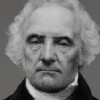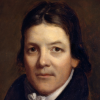Quotations about:
complement
Note not all quotations have been tagged, so Search may find additional quotes on this topic.
Guard against that vanity which courts a compliment, or is fed by it.
Thomas Chalmers (1780-1847) Scottish minister, theologian, political economist, church leader
Journal (1810-05-10)
(
Source)
Added on 16-Nov-23 | Last updated 16-Nov-23
Link to this post
Topics: complement, ego, praise, pride, vanity
More quotes by Chalmers, Thomas
Hunt out and talk about the good that is in the other fellow’s church, not the bad, and you will do away with all this religious hatred you hear so much of nowadays.
Will Rogers (1879-1935) American humorist
Column (1923-03-11), “Weekly Article”
(
Source)
People ask you for criticism, but they only want praise.
W. Somerset Maugham (1874-1965) English novelist and playwright [William Somerset Maugham]
Of Human Bondage, ch. 50 (1915)
(
Source)
Added on 11-May-21 | Last updated 11-May-21
Link to this post
Topics: complement, criticism, ego, praise
More quotes by Maugham, W. Somerset
He is a man of splendid abilities, but utterly corrupt. He shines and stinks like rotten mackerel by moonlight.
John Randolph of Roanoke (1773-1833) American politician, diplomat
(Attributed)
Comment on Edward Livingson, quoted in W. Cabell Bruce, John Randolph of Roanoke, Vol. 2 (1923). Sometimes incorrectly given as an attack on Henry Clay.
Added on 31-Jul-17 | Last updated 31-Jul-17
Link to this post
Topics: ability, backhanded, complement, corruption, insult
More quotes by Randolph, John (Roanoke)
I took a sip. It went surprisingly well with the veal. On the other hand, the fourth margarita goes surprisingly well with everything.
Robert B. Parker (1932-2010) American writer
Taming A Sea-Horse (1986)
Added on 6-Apr-17 | Last updated 6-Apr-17
Link to this post
Topics: aesthetics, alcohol, complement, drinking, drunk, flavor, intoxication, margarita, match
More quotes by Parker, Robert
Tact is the ability to describe others as they see themselves.
Mary Pettibone Poole (fl. 1930s) American aphorist
A Glass Eye at a Keyhole, “Made in Manhattan” (1938)
(
Source)
Added on 23-Jan-17 | Last updated 5-Oct-23
Link to this post
Topics: complement, diplomacy, ego, self-image, tact
More quotes by Poole, Mary Pettibone
After sitting next to Mr. Gladstone I thought he was the cleverest man in England. But after sitting next to Mr. Disraeli I thought I was the cleverest woman in England.
(Other Authors and Sources)
Princess Marie Louise of Schleswig-Holstein (1872-1956) (Attributed)
Added on 15-Aug-16 | Last updated 15-Aug-16
Link to this post
Topics: charisma, charm, cleverness, complement, flattery, greatness, leadership
More quotes by ~Other
To tell a woman who is forty, “You look like sixteen,” is baloney. The blarney way of saying it is: “Tell me how old you are, I should like to know at what age women are most beautiful.”
Fulton Sheen (1895-1979) American Catholic archbishop, preacher, televangelist
Life Is Worth Living, s.5 (1957)
Added on 6-Jul-15 | Last updated 6-Jul-15
Link to this post
Topics: age, beauty, blarney, complement, con, flatter, flattery, shmooze, sweet talk, woman
More quotes by Sheen, Fulton
“Thalaba,” Mr. Southey’s second poem, is written in open defiance of precedent and poetry. Mr. S. wished to produce something novel, and succeeded to a miracle. “Joan of Arc” was marvelous enough, but “Thalaba” was one of those poems “which,” in the words of Porson, “will be read when Homer and Virgil are forgotten, but — not till then.”
George Gordon, Lord Byron (1788-1824) English poet
“English Bards and Scotch Reviewers,” footnote to l. 205 (1809)
(
Source)
When one of his earlier works was harshly criticized in the
Edinburgh Review, Byron wrote this poem satirizing such critics (and the poetry they like). He refers to Robert Southey's "Thalaba," bringing in a phrase used by classical scholar Richard Porson to refer to Southey's poem "Madoc". Except ...
... Porson doesn't include the "but not till then" phrase in his original comment. A man of subtle but biting humor, it seems likely he intended that as a subversive but deniable reading of "when Homer and Virgil are forgotten". Believing that, multiple writers of the time in turn criticized Byron for crudely spelling out Porson's
bon mot (examples:
Timbs (1862),
Powell/Rogers (1903)).
Added on 13-Mar-13 | Last updated 12-Jan-23
Link to this post
Topics: complement, criticism, insult, review
More quotes by Byron, George Gordon, Lord









